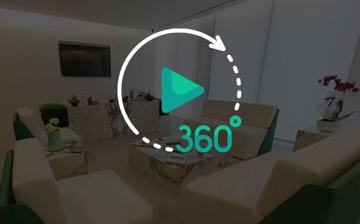
Intestinal Prolapse
It is an intestinal disease that progresses with herniation in this region, your rectum has begun to drop partway into your anus, If you have a mucosal prolapse, the inside mucous lining of your rectum has turned inside-out and begun to poke out of your anus.
 Factor of multiple births and difficult births; It is the most important reason why this disease is more common in women than men.
Factor of multiple births and difficult births; It is the most important reason why this disease is more common in women than men.
Although it can be seen in the young age group, it is mostly seen in patients over the age of 45-50.
The fact that tissue building block factors are not as tight as in younger age is the main factor in this situation.
When we look at the causes of the disease, the most common cause is constipation, which has been going on for years.
These complaints can be seen in almost all patients after prolonged constipation.
Apart from constipation, diseases and tissue diseases that provoke the intestine outward can cause rectal prolapse (intestinal prolapse).
Continuous coughing that increases intra-abdominal pressure and excessive strain during exercise can also cause rectal prolapse (intestinal prolapse).
Complaints in most of the patients; These are complaints related to the part of the intestine that is directly palpable due to the protrusion of a part of the intestine during the toilet.
Apart from this, difficulty in toileting, feeling of being blocked at the exit, feeling of constant straining, feeling of not being able to empty the toilet completely, and feeling as if there is an obstacle or dam and trying to overcome it.
Rectal prolapse (intestinal prolapse) disease can often be confused with hemorrhoids (hemorrhoids). In this case, the patient's words should be listened carefully.
The diagnosis of the disease can be made by observing the protruding intestinal segment by asking the patient to strain during the breech examination.
Therefore, physical examination has an important place in intestinal prolapse disease .
indecision cases, digital defecography and pelvic MRI can help in diagnosing the disease.
Treatment of rectal prolapse (intestinal prolapse); It should be planned according to the patient's complaints and the level of intestinal prolapse.
In patients with intestinal prolapse; Rectal prolapse (intestinal prolapse) may improve if the accompanying co-morbid conditions, ongoing constipation or diarrhea are treated.
For this reason, the treatment approach towards the patient, not the disease, is the most important approach, as in all other intestinal diseases.
In patients with advanced rectal prolapse (intestinal prolapse) who do not respond to dietary recommendations or medical treatment, the most common treatment is surgery.
Surgical methods may vary according to the age of the patient, the status of rectal prolapse (intestinal prolapse) and whether there is an accompanying disease. Surgical methods can be applied by basically two different mechanisms.
The first of these is the removal of the part hanging from the anus region and the suturing of the cut part here; It can be applied in early-level cases or in hernias that concern only the inner surface of the intestine, which we call mucosal prolapse.
It is the process of hanging the intestine up on the posterior wall of the abdomen with either closed or open method from the abdomen; It can be applied in patients with advanced rectal prolapse (intestinal prolapse) and patients with an excessively long bowel length.
In patients with rectal prolapse (intestinal prolapse) for many years; It can cause various complications after the operation due to weakening and deterioration of its anatomy.
For this reason, patients should be given detailed information about what they may experience about the treatment and subsequent stages.
After the surgical treatment of rectal prolapse (intestinal prolapse), patients can be exercised with various devices to work the main muscles of the abdominal floor and around the anus , and they can regain their pre-disease health.
If appropriate treatment is provided after the treatment of the disease, it is possible for the patients to regain their social and business life and return to their normal lives.
Ask Your Doctor
For appointments and inquiries, please fill out the form below.







